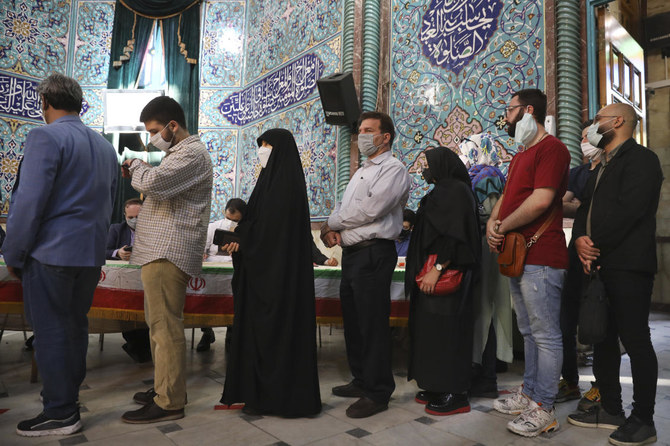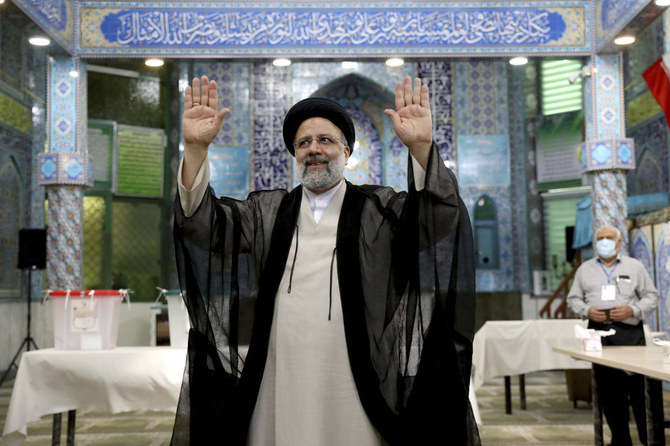JEDDAH: As Iranian state TV showed people streaming to cast their ballots on Friday and news anchors praising the voters, very different scenes played out on the streets of Tehran, where many polling places appeared relatively empty.
Amid rising anger and apathy over a presidential vote tipped in favor of Ebrahim Raisi, the hard-line judiciary chief cultivated by Iranian Supreme Leader Ali Khamenei, the election atmosphere was distinctly subdued, the Associated Press reported.
“It is useless,” said Ali Hosseini, a 36-year-old unemployed resident in southern Tehran, about the exercise of voting.
“Anyone who wins the election after some time says he cannot solve the problem of the economy because of intervention by influential people. He then forgets his promises and we poor people again are disappointed.”
At 16 different polling stations across Tehran, witnesses described lines of voters as “short” as no more than eight voters at a time could be seen casting ballots.
Some polls remained virtually deserted throughout the day. Listless poll workers listened to state radio, looked at their phones, or chatted calmly.
Farid Mahoutchi, the spokesman for the National Council of Resistance of Iran (NCRI), a Europe-based opposition group, said that according to reports, pictures, and video clips from polling stations across 220 cities in 31 provinces, the “sham” election was met with a widespread boycott.
Reports from polling station staff in many areas of Tehran, such as the Qamar Bani Hashem Mosque, Armaghan Alam, and polling stations in Tehran’s second district, which includes 64 polling stations, show participation was very meager.
“None of the candidates are trustworthy,” said Nasrin, a 31-year-old accountant in central Tehran.
Another passerby in a middle-class Tehran district, Rojin Ahmadi, 23, said: “None of them dared to offer a plan to show they would bring the country into normalcy.”
Ahmadi said she did not cast a vote.
Former hard-line populist President Mahmoud Ahmadinejad seized on popular anger by repeating his decision to stay home and not vote. He warned that the heavily restricted process will produce a government without domestic or international legitimacy.
“I am not going to vote. And the main reason is that I am witnessing a major part of the people is put aside,” he told The Daily Telegraph.
“A weak government is coming to power. And a weak government will weaken the situation in Iran. It will weaken the domestic situation and it will weaken our relations with the world. It will turn our relations with the rest of the world against Iran.”
In Lebanon, the Iranian Embassy set up three polling stations — one inside the embassy and the others in the city of Nabatiyeh in southern Lebanon and in the city of Baalbek.
When asked about the number of Iranians in Lebanon, a media official from the embassy told Arab News: “Disclosing this number is not in the embassy’s interest.”
The turnout was low in Nabatiyeh despite many families of Iranian origin residing in the area.


















